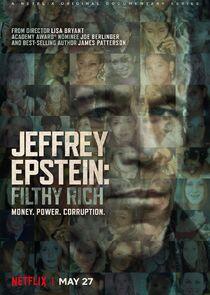
Bill Robinson
According to dance critic Marshall Stearns, "Robinson's contribution to tap dance is exact and specific. He brought it on its toes, dancing upright and swinging," adding a "hitherto-unknown lightness and presence." His signature routine was the stair dance, in which he would tap up and down a set of stairs in a rhythmically complex sequence of steps, a routine that he unsuccessfully attempted to patent. He is also credited with having popularized the word copacetic through his repeated use of it in vaudeville and radio appearances.
He is famous for his dancing with Shirley Temple in a series of films during the 1930s, and for starring in the musical Stormy Weather (1943), loosely based on his own life and selected for preservation in the National Film Registry. He used his popularity to challenge and overcome numerous racial barriers. Robinson was one of the first minstrel and vaudeville performers to appear as black without the use of blackface makeup, as well as one of the earliest Black performers to perform solo, overcoming vaudeville's two-color rule. Additionally, he was an early black headliner in Broadway shows. Robinson was the first black performer to appear in a Hollywood film in an interracial dance team (with Shirley Temple in The Little Colonel, 1935), and the first black performer to headline a mixed-race Broadway production.
Robinson came under heavy criticism for his apparent tacit acceptance of racial stereotypes of the era, with some critics calling him an Uncle Tom. He strongly resented this, and his biographers suggested that critics were underestimating the difficulties faced by black performers engaging with mainstream white culture at the time, and ignoring his many efforts to overcome racial prejudice. In his public life, Robinson led efforts to persuade the Dallas Police Department to hire its first black policeman; lobby President Franklin Delano Roosevelt during World War II for equal treatment of black soldiers; and stage the first integrated public event in Miami, a fundraiser which was attended by both black and white city residents.
Robinson was a popular figure in both black and white entertainment worlds of his era, and is remembered for the support that he gave to fellow performers, including Fred Astaire, Eleanor Powell, Lena Horne, Jesse Owens and the Nicholas Brothers. Sammy Davis Jr. and Ann Miller credited him as a teacher and mentor, Miller saying that he "changed the course of my life." Gregory Hines produced and starred in a biographical movie about Robinson for which he won the NAACP Best Actor Award.
Despite being the highest-paid black performer of the time, Robinson died penniless in 1949, his funeral paid for by longtime friend Ed Sullivan. In 1989, Congress designated Robinson's birthday of May 25 as National Tap Dance Day.
Biography from the Wikipedia article Bill Robinson. Licensed under CC-BY-SA. Full list of contributors on Wikipedia.
Part of Crew
Recently Updated Shows

48 Hours
48 Hours is a CBS news magazine that investigates intriguing crime and justice cases that touch on all aspects of the human experience. Over its long run, the show has helped exonerate wrongly convicted people, driven the reopening -- and resolution -- of cold cases, and changed numerous lives. CBS News correspondents offer an in-depth look into each story, with the emphasis on solving the mystery at its heart. The program and its team have earned critical acclaim, including 20 Emmys and three Peabody Awards.

Invasion
Earth is visited by an alien species that threatens humanity's existence. Events unfold in real time through the eyes of five ordinary people across the globe as they struggle to make sense of the chaos unraveling around them.

Wednesday
Smart, sarcastic and a little dead inside, Wednesday Addams investigates a murder spree while making new friends — and foes — at Nevermore Academy.

Alien: Earth
When the mysterious deep space research vessel USCSS Maginot crash-lands on Earth, Wendy and a ragtag group of tactical soldiers make a fateful discovery that puts them face-to-face with the planet's greatest threat.

Peacemaker
This James Gunn-created series continues the saga of Peacemaker, a vainglorious superhero/supervillain who believes in peace at any cost — no matter how many people he has to kill. After a miraculous recovery from his duel with Bloodsport, Peacemaker soon discovers that his freedom comes at a price.




